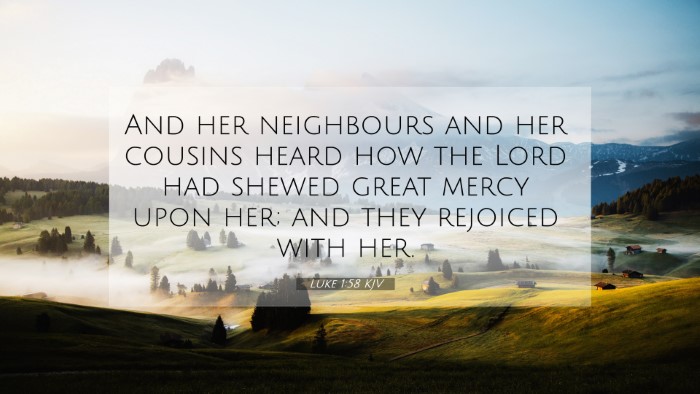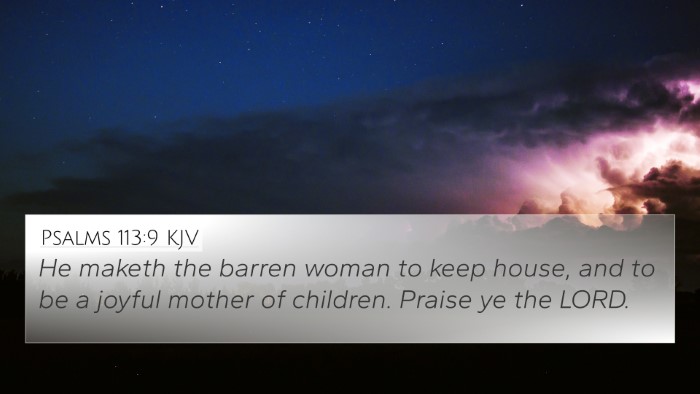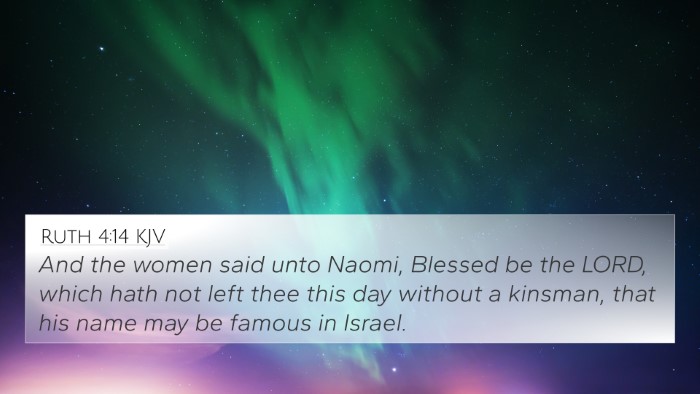Understanding Luke 1:58
Luke 1:58 states, "And her neighbors and relatives heard that the Lord had shown great mercy to her, and they rejoiced with her." This verse captures a significant moment in the narrative of Elizabeth, the mother of John the Baptist, witnessing God’s providential care in her life. Here, we delve into the meaning of this verse by synthesizing insights from esteemed public domain commentaries.
Context of the Verse
This verse comes at a pivotal time in the Gospel of Luke. Elizabeth, who had long been barren, gave birth to John after divine intervention. The surrounding community's reaction reflects the joy and amazement at God's mercy on Elizabeth.
Commentary Insights
- Matthew Henry: Henry highlights the communal joy that springs from individual blessings, illustrating how God's actions not only affect the recipient but also impact the broader community. This rejoicing represents an acknowledgment of God's mercy in Elizabeth's life.
- Albert Barnes: Barnes emphasizes the goodness of God being evident to all, as the neighbors recognized the miraculous change in Elizabeth’s circumstance. He notes that public acknowledgment of God's mercy leads to collective celebration, reinforcing communal ties.
- Adam Clarke: Clarke focuses on the aspect of mercy depicted in the verse, explaining that divine mercy is often accompanied by human acknowledgment. Clarke’s exposition underscores the importance of giving glory to God in response to His good works.
Thematic Elements
The verse encapsulates several thematic elements, including:
- Divine Mercy: The recognition of God’s mercy towards individuals can inspire gratitude and faith within the community.
- Community Rejoicing: This verse signifies how personal blessings can lead to collective joy, growth of faith, and deeper community bonds.
- Fulfillment of God’s Promises: Elizabeth’s experience serves as a testament to God’s faithfulness in fulfilling promises made to His people.
Cross-References
To enrich the understanding of this verse, several applicable Bible cross-references can be considered:
- Genesis 21:6: Sarah's joy upon bearing Isaac, a parallel story of divine mercy.
- 1 Samuel 2:1: Hannah's song of rejoicing upon the birth of Samuel reflects similar themes of personal and communal joy.
- Psalm 126:3: "The Lord has done great things for us, and we are filled with joy," which mirrors the rejoicing in Elizabeth's community.
- Isaiah 54:1: A prophetic declaration about the barren having more children, echoing the joy in Luke 1:58.
- Luke 1:14: The prophecy that John will bring joy to many, connecting directly to the rejoicing seen in this verse.
- James 1:17: A reminder that every good and perfect gift is from above, affirming God's role in Elizabeth's miracle.
- Matthew 18:20: "For where two or three gather in my name, there am I with them," highlighting God's presence in communal rejoicing.
Tools for Deeper Exploration
For those looking to delve deeper into Bible verse connections and thematic studies, the following tools and methods can be beneficial:
- Bible Concordance: A tool to find words and their occurrences throughout the scriptures.
- Bible Cross-reference Guide: Resources that provide structured cross-references for thematic study.
- Cross-reference Bible Study: Methods designed to explore relationships between biblical texts for enhanced understanding.
- Bible Reference Resources: Comprehensive materials that include commentaries, study notes, and theological reflections.
- Inter-Biblical Dialogue: Engaging in comparative studies between different biblical books, especially the Old and New Testaments.
Conclusion
Luke 1:58 serves not only as a narrative moment but as a profound theological statement about God’s mercy and collective joy. Understanding this verse in light of other related scriptures fosters a rich tapestry of meaning that underscores the importance of community and divine grace. Engaging with the cross-references deepens one's appreciation for the intricate connections within the Bible, paving the way for a more comprehensive understanding of scripture.











